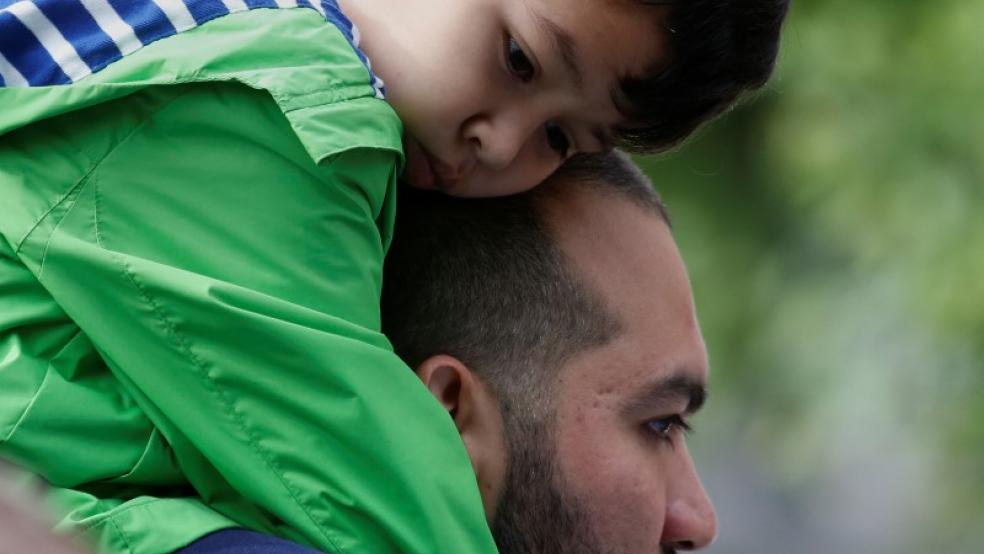If Donald Trump’s Twitter feed is a bellwether of his campaign in general, and it’s as good an indicator as any, we’re about to see a shift in focus from the Republican presidential nominee toward national security and terrorism.
The US experienced what appear to have been three different terrorist attacks over the weekend -- a bombing in New York City’s Chelsea district that left dozens injured, a bombing in New Jersey that disrupted a road race but caused no injuries, and a stabbing rampage at a Minnesota shopping mall that left eight people injured.
Related: Media to Trump on Birther Issue: ‘It’s Not Over’
Officials have suggested that the two bombings might be related, and the Islamic State terror group has claimed responsibility for the Minnesota attack.
Overnight Sunday, the FBI and local police investigated a backpack found near a train station in Elizabeth, New Jersey that had multiple improvised explosive devices inside. At least one appears to have detonated while a police robot was inspecting them. Commuters in the Northeast on Monday woke up to news of major transit delays as a result.
As news about the attacks began to spread, there was a notable change in the tone and content of Trump’s Twitter posts -- his preferred means of communication with the public when he is not calling into cable news programs. New York Times columnist Maureen Dowd was “crazy” and a “neurotic dope.” CNN guests who spoke ill of Trump were “mostly losers in life.” Former Defense Secretary Robert Gates was “dopey.”
But you could almost hear the record scratch Sunday morning when Trump changed direction. Other than retweeting his campaign manager’s posts about polling and wishing the Air Force a happy birthday, Trump’s tweets were suddenly full of seemingly heartfelt concern for the victims of the terrorist attacks and criticism of the Obama administration and Democratic presidential nominee Hillary Clinton’s policies.
Related: Deplorable: Trump Uses Vets as Backdrop for Hotel Pitch, Birther Lies
“Saturday’s attacks show that failed Obama/Hillary Clinton polices [sic] won’t keep us safe! I will Make America Safe Again!” Trump wrote Sunday morning.
By Sunday afternoon, the Trump campaign released a blistering attack on Clinton’s vice presidential running mate, Virginia Sen. Tim Kaine. In an interview, Kaine contended that the US had made dramatic improvements in its strategy for fighting the ISIS.
“The only thing that is ‘dramatically improved’ is ISIS’s global reach, the frequency of deadly attacks, and the threat they pose due to the failed national security policies of President Obama and Hillary Clinton,” read a statement attributed to Trump senior communications adviser Jason Miller. “Given that recently uncovered U.S. intelligence documents say ISIS is expanding the number of areas where they are fully operational, Hillary Clinton should say whether she agrees with her running mate’s troubling assessment of the threat they pose.”
It’s safe to assume that this is just the start for Team Trump. The issue of terrorism has been a strong one for the GOP nominee in recent months. While polling earlier in the summer tended to show that voters trusted Clinton more than Trump to deal with the threat of terrorism, the most recent polls have indicated that Trump is closing that gap and that he is, in some cases, preferred to the Democratic nominee.
Related: Trump’s Dramatic Birther Flip Is a Big Flop
The attacks come as Trump and his surrogates were facing powerful pushback from both Democrats and the national media over the candidate’s false claim that Hillary Clinton was responsible for the spread of a persistent untrue rumor that President Obama was not born in the US. Team Trump plainly wanted to see the back of that issue, with GOP vice presidential nominee Mike Pence declaring “It’s over” in an interview with ABC.
Reporters weren’t prepared to oblige them over the weekend, but it’s an old saying among political hands that you should never let a good crisis go to waste. Don’t expect Trump and his campaign to let the opportunity to change the conversation slip away.





